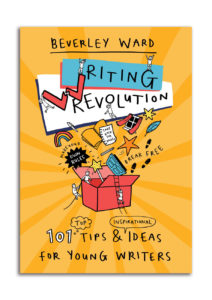Is it time for a Writing Revolution?
‘I want to start a writing revolution’
It is April 2020 and, like many parents, I’m sitting at the kitchen table attempting to persuade my usually bright and engaged ten-year-old to do his English schoolwork. His task is to write a letter to his teacher explaining the pros and cons of lockdown using a varied range of connectives and conjunctions. Before doing this task, he’s supposed to labour through a tiresome text about what one of his teachers feels about lockdown, underlining the varied range of connectives and conjunctions which she has used. Next, he’s been instructed to write ten sentences demonstrating that he can correctly employ the same grammatical structures before embarking on a plan for his letter which must feature a list of pros and cons. We have already abandoned the first few tasks but I believe he should be able to come up with the lists and I am determined that we will not fail, even if both of us are on the verge of tears. Finally, he stabs his pencil into his paper and produces two lists. His list of pros goes something like this: living in pyjamas, Minecraft, no school. His list of cons consists of the following:
this
this
this
this
this
this
this
this
Mummy yelling at me every five seconds.
Today is the day that we decide to ditch the curriculum and the day that I decide that a writing revolution is needed.
In truth, I’ve known that a writing revolution was needed ever since I began a Writing Club at my children’s school seven years ago. Having facilitated writing workshops for a good couple of decades, I thought I knew all about the ingredients of writing, but when I stood at the front of the lunchtime classroom and asked the eager children what made a good story their answers horrified me. Their hands shot up and they informed me that stories are made up not of characters, plot twists and magic but of ‘verbs’, ‘paragraphs’ and ‘punctuation.’ I set about undoing everything these children had been taught and freeing them from the writing rules that had become a stultifying prison.
Anyone who has observed the primary curriculum knows that today’s children are working within absurd constraints that leave scarcely any room for imagination and individuality. What little creative writing they’re allowed to do is so scaffolded that it’s hard see what they’re trying to build, and the formulas they write with are so prescriptive that there’s no room for surprise or joy. But what about the rest of us? What about the writers further along on our writing journeys? What rules do we impose on ourselves and how can we stage our own writing revolution?
My home education experience prompted me to write and film a poem about starting a Writing Revolution and then I sat down and wrote a book of writing prompts and tips for young writers. The book is for 8–12-year-olds but, in truth, it’s suitable for anyone, because which of us does not need to remember the magic and joy of writing without restraint?
In the spirit of revolution, here are a few common writing rules that I think we should break.
1. Write what you know.
To some extent it’s sound advice but if we only write what we know, when do we get to feel the empathy of walking in another’s shoes or the magic of stepping into another world? I say write what you want. Otherwise, what’s the point?
2. Make a plan before you begin writing
To my mind this is possibly the biggest travesty of the writing curriculum. Sure, planning can prevent some rewriting and a grasp of story structure can be helpful, but there’s nothing like the pleasure of setting out on adventure with no idea what’s going to happen next. For me, that’s where the unexpected happens, it’s where the joy is.
3. A writer must have money and room of their own
I love Woolf as much as the next writer and which of us doesn’t fantasise about the perfect writing room, but the reality is that writers can write anywhere and isn’t that just the best thing about our chosen art form? All we need is a pen and paper. We can write on a riverbank or a train, in a café or at the bus stop. Don’t wait for the perfect conditions. Write anywhere.
4. Writers need peace and time
As a self-employed single parent, I look back now in envy and incredulity at the person I used to be, the person who thought that because I had a job, I didn’t have time to write. How crazy I was! How much precious writing time I wasted! Now, writing time is snatched between running workshops, coaching other writers, cajoling kids to school and to bed. I wrote my last novel in twenty-minute slots between 6.30am and 7.00am while my daughter was getting ready for school. The truth is, we can always make time. My favourite quotation ever is by Doris Lessing: ‘Whatever you’re meant to be doing, do it now. The conditions are always impossible.’ She’s right. Do it now.
5. Study the market
Yes, when you’re pitching to agents, it’s good to have a handle on current publishing trends but we all know that no-one can predict the market. By the time you’ve written something on trend it’s old hat. So, I say, write what you love. If you love it, there’s a good chance someone else will too and, if not, at least you’ll have enjoyed the journey. As writers we know that it’s the journey that counts.
Try this:
Start with ‘On this blank page I could write…’ and see where it takes you. Don’t think too hard. Don’t strive for perfect prose. Just let your pen take you where it wants to go. What could you write on your blank page? Why don’t you?
‘This is your book. This is your story. You make the rules. The writing revolution starts now.’
Writing Revolution: Tips and Ideas for Young Writers is available now
You can find out more about Beverley and her work at www.beverleywrites.com





